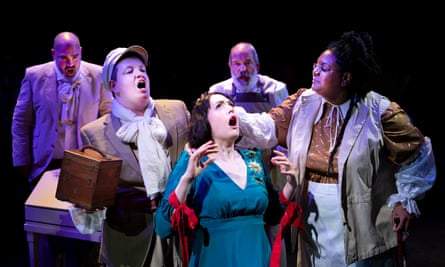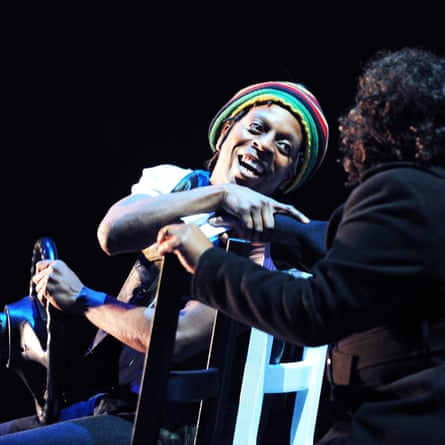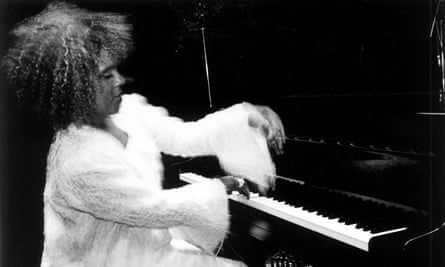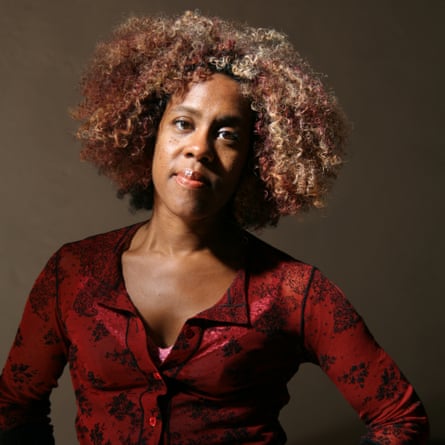As a student at Goldsmiths I was out practically every night attending concerts and was at nearly every important premiere – Ferneyhough, Maxwell Davies, Birtwistle, Boulez, Reich, LeFanu – mostly male composers, it is true. So very many concerts by London Sinfonietta. But how did I make the transition from concertgoer to concert-giver?
Nicola LeFanu did so much to promote her mother Elizabeth Maconchy’s music and I remember her saying how difficult it had been for her mother to be taken seriously as a composer. Nicola, along with several of us fellow female composers, musicians and administrators, founded the organisation Women in Music in 1987 to help address the woeful situation. Wherever I turned there was rejection. Nothing about me fitted the picture of a composer. I didn’t even fit the image to myself – I wasn’t white, male, dead, in a wig or on a wall. I applied to all the major composing courses, including Tanglewood, Banff and Dartington, and entered many competitions with no success. I also applied to the brilliant Gulbenkian Course for Choreographers and Composers, finally getting admitted on my third attempt. My ambitions for my music seemed out of step with the prevailing classical-music structures.
But there came a day when I realised in a flash that no one was ever going to play my music unless I did something about it myself. I had started to have a vision of contemporary classical music that was fun and joyous. I loved going to concerts of new music but they were so resolutely serious and seemed to be mostly for the benefit of the already initiated. Most of the composers were male. There were a lot of brown jumpers. My years performing more widely – from care homes to stadiums – reinforced my desire to connect with a larger world. I decided to put on a concert with my friends based around repertoire I had already composed. This was Ensemble X’s first gig, at the Purcell Room on London’s South Bank in 1990. The audience was greeted with a bite-size Mars bar each. I had always wanted to go to a concert that involved chocolate. I had written the press releases and posted them by hand to music journalists and newspapers. I came up with a motto for the band: ‘We don’t break down barriers in music … we don’t see any.’ While I was concerned about the use of the negative twice in that motto, it did genuinely speak to my own musical aesthetic.
I already had a smörgasbord of sounds to play with

As a small child it crossed my mind to be an opera singer before I knew what an opera even was. I wonder if I was motivated by the family’s vivid place mats with scenes from Carmen, which I looked at at every mealtime. Years and years later, when I came to write my first opera, I realised that, as a listener, what I perceived to be the hysteria of grand opera no longer spoke to me in quite the same way as when I was eight.
The first opera I ever saw staged, when I was a schoolgirl, was Cavalli’s La Calisto, which was first performed in Venice in 1651. I loved the stripped-away sound and austere textures. As a music student my favourite periods of music were definitely the baroque and the music of my own time. In my early formal training as a composer I was trained to deny the freely expressive in favour of music that was more based in numbers and set theory.
That early training taught me that you can make music and powerful atmospheres through restrictions and constraint, and it was how you shaped phrases through rhythm, tempo and interval that revealed what invention you possessed. As a child, I had grown up with the sound of soul, reggae and Ella Fitzgerald, so I already had a smörgasbord of sounds to play with, even though, as a student composer, I was steeped exclusively in contemporary avant-garde music.

When I am writing the music for an opera, the characters come first. Though the libretto can take a long time to get right, I regard it as something of a magical skeleton and once it’s in shape, it’s as if I have to start again from the beginning. I feel that I must then live with the characters and absorb their hidden secrets, possibilities and motivations, sometimes only hinted at by words on the page. I must be patient and wait until the characters become 3D – until they speak to me. I imagine their facial gestures and nervous tics before I write a note. In the opera YES, which premiered at the Linbury theatre in 2011, though Bonnie Greer’s libretto doesn’t specify the character Joan’s precise location, I imagined her in a particular London square with the sound of bells coming from a nearby church. That became a motif in the score. I start by composing the vocal score, which I regard as a map in which the voice and text are fixed, accompanied by a piano part that serves to outline the harmonies and important instrumental lines. It is only when the vocal score is finalised that I move on to orchestration and the full score. There, the orchestra’s or ensemble’s job is not only to flesh out the characters but to place them in an environment where that environment is itself also a character.
Both what the singers sing and the music that they sing over are important for the storytelling. The opera composer’s job, then, is twofold: we have to tell the story, through putting breath into character, and also step outside it to comment on it, subvert it, plant the seed of what’s going to happen later, and sometimes reveal the opposite of what’s going on. We lie, cheat, steal, murder and live to tell the tale.
I want to write about the world around me

I was joking the other day that I’m going to throttle the next person who comes up to me saying “Wow! I’ve got a great idea for an opera!” without the least idea of what all-consuming work it is to create one. The most recent suggestion was from someone in a maximum-security prison serving a life sentence, so a set-to could be a little difficult. It can take years to write the music for an opera. You have to have a strong stomach when diving into such a big undertaking with a crew of people who might be largely unknown to you, all with strong ideas as to how it should go. But it is interesting to ask the question: what subjects do make for good opera?
The truth is any subject can make for opera but I believe that it must be a matter of life-or-death importance, ultimately, for the librettist and composer to tell that story. What was interesting and moving about the letter I received from the prisoner was that until he heard about YES, he didn’t realise that an opera could be about one’s own life or situation. I believe that we opera-makers must remember the obvious – that opera is a dramatic form and so, for me, I am always interested in finding a situation that is full of dramatic possibilities, able to unfold in several directions. I can usually smell whether it’s the right subject for me from very little information … I think about where and when the story is set, and can I really live with these characters for years on end? What can I bring to it that’s not already there? I ask myself why the story needs to be told as an opera and not a play or a film, or a novel or a poem – all forms where the words are more easily intelligible.
With my collaborators I ask, “What do we need to show and how do we show it?” Some of the most powerful moments on stage involve no words or physical action. I feel a strong desire and a responsibility to write about the world around me. Opera should have a universal reach. It is a form that can endlessly adapt – combining, as it always has done, text, music, movement, costume, visual spectacle. We take the form forward because of the emotional demands of the content. It is this emotional force that should make singing inevitable, the voice being the final frontier of emotion.

